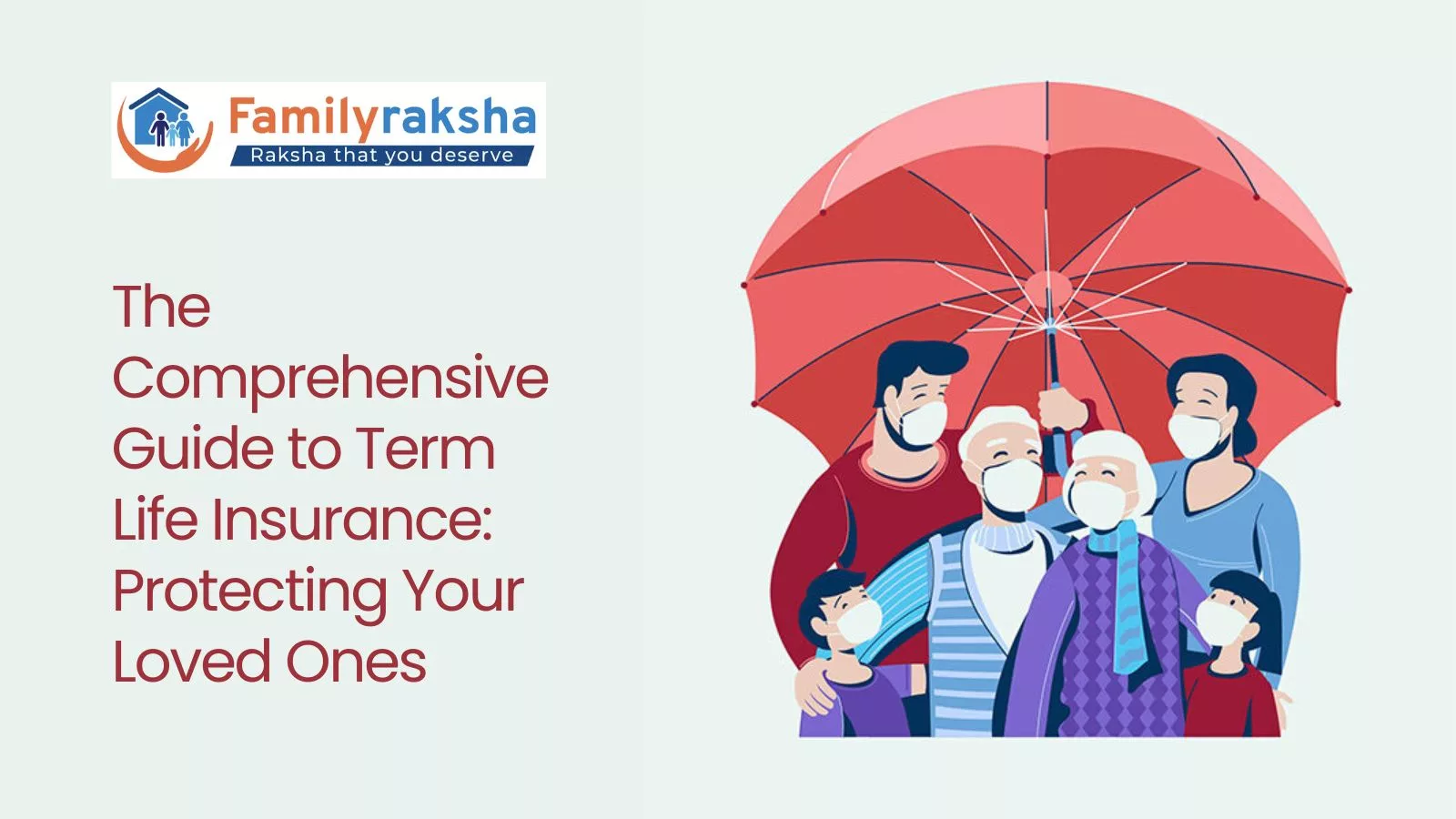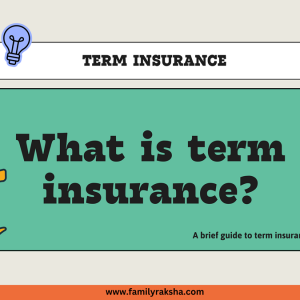Life is full of uncertainties, and one of the greatest responsibilities we have is to protect our loved ones even after we’re gone. This is where Term Life Insurance comes into play. Term Life Insurance provides financial security for your family and ensures that their future is safeguarded in the event of your untimely demise. In this comprehensive guide, we will explore everything you need to know about Term Life Insurance, from its definition and benefits to the factors to consider before purchasing a policy.
Term Life Insurance: Ensuring Financial Security
Life insurance is a contract between an individual and an insurance provider, where the insurer agrees to pay a designated sum of money, known as the death benefit, to the policyholder’s beneficiaries upon their passing. Term Life Insurance is a type of life insurance that provides coverage for a specific period, or term, typically ranging from 5 to 30 years.
How Does Term Life Insurance Work?
Term Life Insurance is relatively straightforward. The policyholder pays regular premiums to the insurance company, and in return, the insurer promises to pay out a death benefit to the beneficiaries if the policyholder passes away during the policy term. If the policyholder survives the term, the coverage ends, and no payout is made.
Key Features of Term Life Insurance
- Affordability: Term Life Insurance policies are often more affordable compared to other types of life insurance, such as Whole Life Insurance. This affordability makes it an attractive choice for individuals looking for temporary coverage.
- Flexibility: Term Life Insurance allows you to choose the duration of the policy term based on your specific needs. Whether you require coverage for 10, 20, or 30 years, you can tailor the policy to align with your financial goals.
- Death Benefit: In the event of the policyholder’s death during the term, the insurance company pays a predetermined death benefit to the beneficiaries. This lump sum payment can help cover expenses such as outstanding debts, mortgage payments, and educational expenses.
- Renewability and Convertibility: Some Term Life Insurance policies offer the option to renew or convert the policy to a permanent life insurance policy without the need for a medical examination. This flexibility allows policyholders to adjust their coverage as their circumstances change.
Factors to Consider When Choosing a Term Life Insurance Policy
Choosing the right Term Life Insurance policy requires careful consideration of several factors. By understanding these elements, you can ensure that the policy you select meets your unique needs and provides optimal protection for your loved ones.
Coverage Amount
Determining the appropriate coverage amount is crucial when purchasing Term Life Insurance. The death benefit should be sufficient to cover your outstanding debts, funeral expenses, future income replacement, and any other financial obligations you want to address.
Policy Term Length
The term length of your policy should align with your financial goals and the needs of your dependents. Consider factors such as the duration of your mortgage, your children’s education timeline, and the number of years until retirement when selecting a term length.
Premium Payments
Premiums are the payments you make to maintain your Term Life Insurance coverage. Evaluate your budget and ensure that you can comfortably afford the premium payments throughout the policy term. It’s important to note that premiums may increase if you choose a longer policy term.
Conversion Options
Some Term Life Insurance policies offer conversion options that allow you to convert your term policy to a permanent life insurance policy, such as Whole Life Insurance or Universal Life Insurance, without a medical exam. This feature can be valuable if you anticipate the need for lifelong coverage or if your circumstances change.
Insurer’s Reputation
Research the insurer’s reputation and financial stability before purchasing a policy. Look for companies with strong credit ratings and a proven track record of prompt and reliable claim settlements. Online resources, such as independent insurance rating agencies and customer reviews, can provide valuable insights into an insurer’s credibility.
Additional Riders and Benefits
Consider any additional riders or benefits offered with the Term Life Insurance policy. Common riders include accelerated death benefit riders, which provide access to a portion of the death benefit if the policyholder is diagnosed with a terminal illness, and waiver of premium riders, which waive premium payments if the policyholder becomes disabled.
FAQs about Term Life Insurance
Here are some frequently asked questions about Term Life Insurance:
Can I renew my Term Life Insurance policy after the term expires?
Yes, some Term Life Insurance policies offer the option to renew the policy at the end of the term. However, it’s important to note that the premiums for the renewed policy may be significantly higher than the initial premiums.
Can I convert my Term Life Insurance policy to a permanent policy?
In many cases, Term Life Insurance policies offer conversion options that allow you to convert your policy to a permanent life insurance policy without the need for a medical examination. However, specific terms and conditions may apply, so it’s essential to review your policy documents or consult with your insurance provider for detailed information.
Is Term Life Insurance tax-deductible?
In general, Term Life Insurance premiums are not tax-deductible. However, the death benefit received by the beneficiaries is typically tax-free. It’s recommended to consult with a tax professional or financial advisor to understand the tax implications specific to your situation.
What happens if I miss a premium payment?
If you miss a premium payment, the insurance company may offer a grace period during which you can make the payment without any penalty or policy lapse. The length of the grace period varies depending on the policy and the insurance provider. It’s crucial to review your policy documents to understand the grace period provisions.
Can I add riders to my Term Life Insurance policy?
Yes, many insurance companies offer additional riders that can be added to your Term Life Insurance policy. Riders provide additional benefits and customization options, such as accelerated death benefit riders, accidental death benefit riders, and disability waiver of premium riders. It’s important to review the available riders and their associated costs before making a decision.
Should I buy Term Life Insurance if I have a mortgage?
Having Term Life Insurance when you have a mortgage can provide valuable financial protection for your loved ones. In the event of your passing, the death benefit can help your beneficiaries pay off the outstanding mortgage balance, ensuring they can continue living in their home without financial burden.
Conclusion
Term Life Insurance offers a practical and affordable way to protect your loved ones’ financial future. By understanding the key features, factors to consider, and frequently asked questions surrounding Term Life Insurance, you can make an informed decision and select a policy that meets your specific needs. Remember to assess your coverage amount, policy term length, and conversion options while considering reputable insurance providers. With the right Term Life Insurance policy in place, you can have peace of mind knowing that your loved ones will be financially secure even when you’re no longer around. Follow us for more interesting news and updates.





